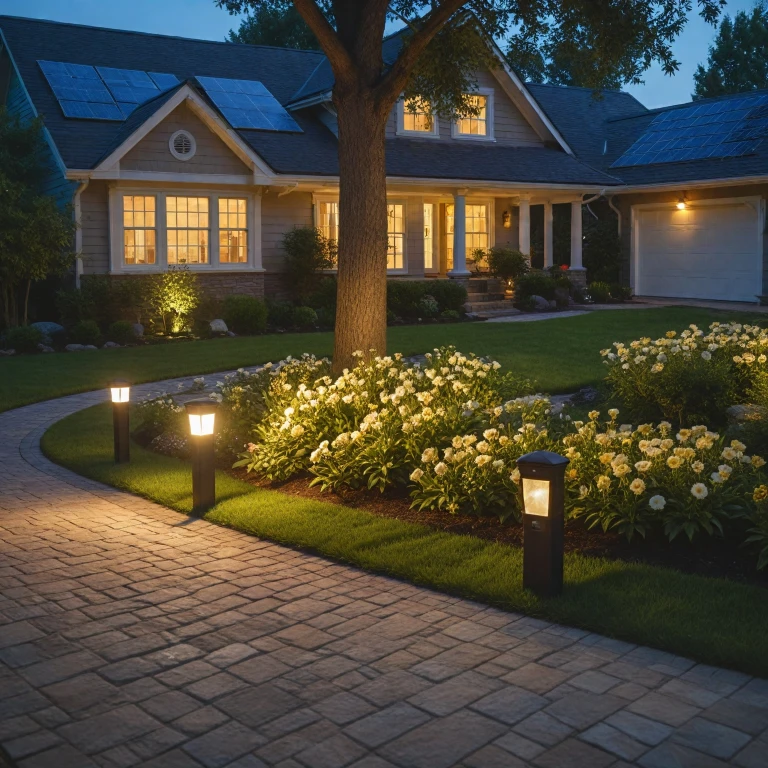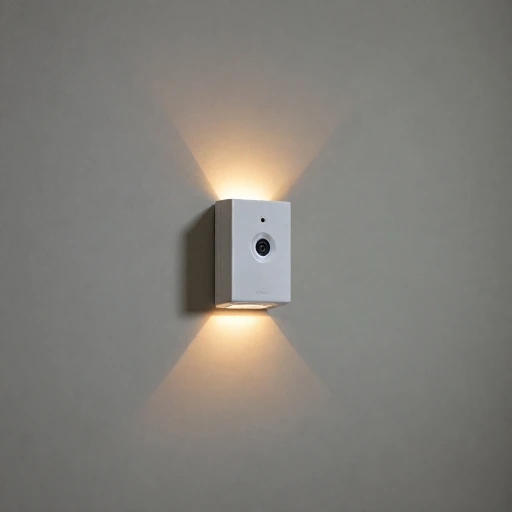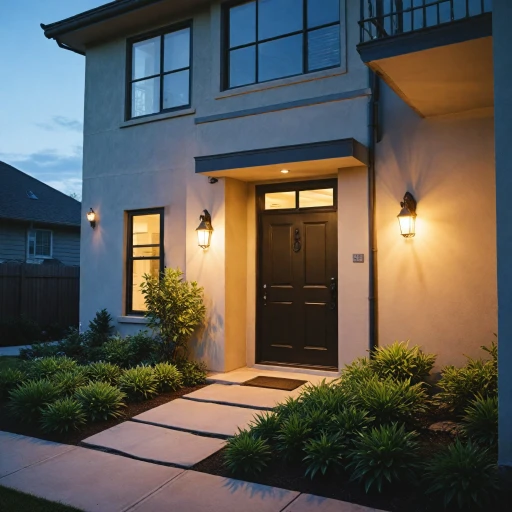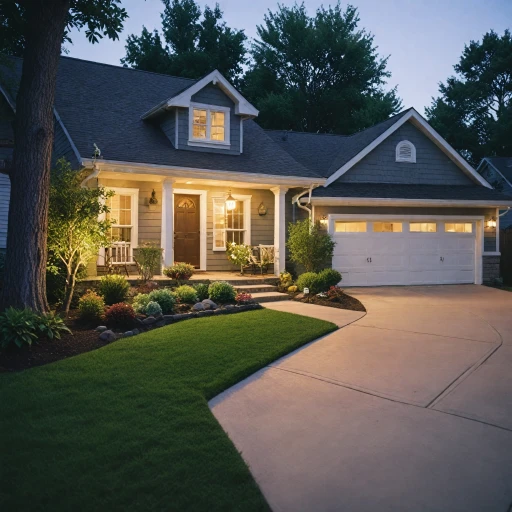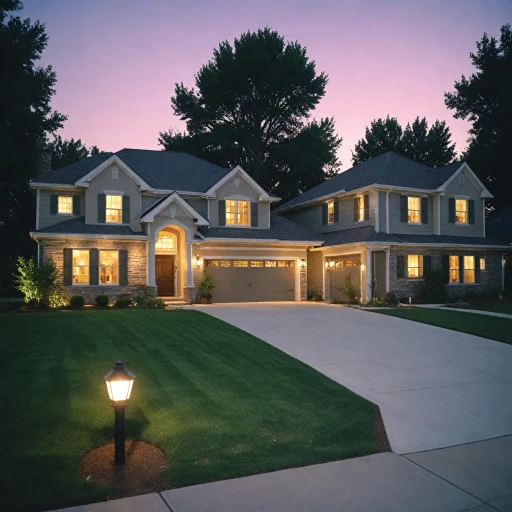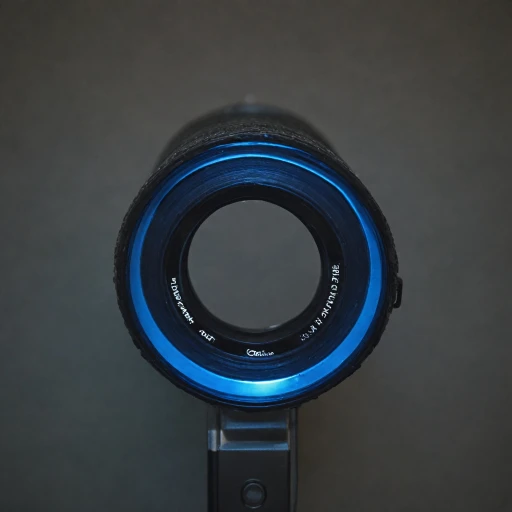
Understanding Solar-Powered Driveway Alarms
Introduction to Solar-Powered Alarms for Driveways
Securing your home starts right at the approach to your property, and that's where a solar-powered driveway alarm truly shines. These alarms utilize cutting-edge solar technology to maintain optimal performance while reducing reliance on traditional power sources. Embracing the environmental benefits and effective functionality, these solutions are gaining traction among homeowners seeking robust alert systems. Solar-powered driveway alarms consist of several components designed to work in harmony. A motion sensor detects movement within a predefined range, often reaching up to several hundreds of feet. When triggered, the sensor sends a wireless alert to the receiver, notifying you of possible intrusions. This entire alarm system can operate efficiently with a solar panel providing the necessary energy, ensuring that you never have to worry about dead batteries. Understanding the specifics of the solar-powered driveway alarm system is crucial. These devices can vary widely in terms of price, ranging from budget-friendly options on platforms like Amazon to more sophisticated systems tailored to larger properties. Considerations such as detection range, the type of motion sensor (such as PIR), and wireless range are paramount. Each of these factors will influence the performance and reliability of your driveway alarms. The versatility of these systems allows them to fit both urban and rural settings. For highly trafficked areas, opting for long-range systems with PIR sensors can help enhance your home security. These sensors are effective in accurately detecting vehicles or people entering your driveway, distinguishing them from other potential sources of motion. In addition to functionality, installation ease is another selling point for these alarms. Wireless driveway alarms remove the hassle of dealing with complex wiring, making it possible for even those with minimal technical expertise to set up an alert system swiftly. For further insights into optimizing your home security through smart technology, explore our comprehensive guide on enhancing home security.Integrating Driveway Alarms with Ring Cameras
Seamless Integration for Enhanced Security
Integrating your solar-powered driveway alarms with Ring cameras can significantly boost your home security system. This combination allows you to monitor your property more effectively, providing real-time alerts and video footage when motion is detected. Here's how you can make the most of this integration:
- Wireless Connectivity: Most modern driveway alarms are equipped with wireless technology, making it easy to connect them with Ring cameras. This wireless range ensures that you can place your sensors and cameras at optimal locations without worrying about cumbersome wiring.
- Motion Detection: Driveway alarms typically use PIR (Passive Infrared) sensors to detect movement. When integrated with Ring cameras, these sensors can trigger the camera to start recording, providing a quick view of any activity in your driveway.
- Customizable Alerts: By linking your driveway alarm system with Ring, you can customize alerts to be sent directly to your smartphone. This allows you to receive instant notifications, whether you're at home or away, enhancing your alert system's efficiency.
- Extended Range: Some driveway alarms, like those from Dakota Alert, offer long-range capabilities, ensuring that even large properties are covered. This extended detection range can be crucial for properties with long driveways or expansive outdoor areas.
- Cost-Effective Solutions: Many solar-powered and battery-powered driveway alarms are available at competitive prices on platforms like Amazon. These products offer a balance between cost and functionality, making them a smart investment for homeowners looking to enhance their security system.
For more insights on enhancing your home security with advanced technology, consider exploring advanced pixel monitoring cameras. This can further complement your integrated security setup, providing a comprehensive view of your property.
Advantages of Solar Technology in Security Systems
Solar Technology: A Powerhouse for Your Security System
The integration of solar technology into security systems has revolutionized the way we protect our homes, standing out as a beacon of sustainable energy and efficient performance. Leveraging solar-powered options for your driveway alarms can offer a range of advantages that elevate your home's security.- Continuous Power Supply: Solar panels convert natural sunlight into energy, ensuring that your driveway alarm remains operational even during power outages. This continuous power supply can keep your alarm system active, providing round-the-clock protection.
- Cost-Effective Operation: Utilizing solar energy reduces the need for frequent battery replacements, saving costs in the long run. The reduced reliance on traditional power sources also contributes to lower energy bills.
- Eco-Friendly Security Solution: Choosing solar technology aligns with environmentally friendly practices, as it minimizes the carbon footprint associated with traditional electric-powered systems.
- Wireless Convenience: Solar-powered driveway alarms often come with wireless features, eliminating complex wiring installations. The wireless range capabilities make it convenient to install the sensor and receiver where they can optimize motion detection.
- Flexibility in Location: With solar-powered components, you can position your driveway alarm in areas where sunlight is abundant, without worrying about proximity to power outlets. This flexibility aids in covering long range detection areas up to several hundred feet.
Installation Tips for Solar-Powered Driveway Alarms
Installation Tips for Your Solar-Powered Driveway Alarms
Investing in a solar-powered driveway alarm can significantly bolster your home security system. However, correct installation is crucial to ensure you receive the best performance possible. Here are some useful tips:- Location and Placement: Position the motion sensor to cover a wide view of your driveway, ideally at entry points. This ensures the alarm system effectively captures any movement within the detection range. Consider how the PIR (Passive Infrared) sensors work regarding distance and angle, ensuring they have a long range of up to several hundred feet.
- Solar Panel Positioning: Ensure the solar panel is installed in a location that receives ample sunlight throughout the day. This is critical for efficient charging. If the panel doesn't receive sufficient light, you might encounter issues with battery-powered backup.
- Wireless Range Considerations: Verify the wireless range between the sensor and receiver is unobstructed by large metal objects or thick walls. This keeps the system's range feet intact, ensuring the sensor can alert you timely via the receiver.
- Test and Adjust: After installation, conduct a few test runs. Check whether the sensor detects motion accurately and sends timely alerts to the receiver. Adjust the angle of the sensor if it doesn't cover the intended area.
- Proper Configuration: Configure different alert tones or lights on your receiver, distinguishing among alerts from multiple areas if you have a multi-sensor system. This enhances quick recognition of possible threats or entries.
- Durability and Maintenance: Even though these systems are designed for outdoor use, regular maintenance will enhance longevity. Periodically clean the solar panel and check for battery degradation, especially in places with limited sunlight.
Troubleshooting Common Issues
Smooth Operation for Your Solar-Powered Driveway Alarms
Troubleshooting common issues with your solar-powered driveway alarm can ensure optimal performance and enhance your home's security.- Limited Detection Range: If your alarm system isn't covering the expected range feet, double-check the positioning of your motion sensor. Ensure no obstacles block the motion line, as this can hinder the wireless range. Consider a product like Dakota Alert for extended range.
- Inconsistent Alerts: An alert system must reliably detect motion. If alerts are sporadic, it may be due to weak signals between the alarm's sensor and receiver. Ensure your driveway alarms are within the recommended wireless range and that battery-powered units have adequate charge.
- Power Supply Issues: Solar powered devices might face inconsistency if the solar panel is not receiving enough sunlight. Ensure your solar panel is placed effectively to capture maximum sunlight, providing consistent power to the alarm system.
- Interference or False Alarms: Outdoor motion detection systems can sometimes trigger false alarms from moving objects like tree branches. Position your sensor to minimize such interference, modifying the view angle as needed.
- Connectivity Problems: Wireless driveway alarms depend on a robust connection. Ensure your system's wireless range is adequate, and position the receiver within the suggested range feet. For a reliable connection, check if your system or any recommended enhancements are listed as a best product on sources like Amazon.
Choosing the Right Driveway Alarm for Your Needs
Evaluating Key Features for Selection
When choosing the ideal driveway alarm, evaluating the key features that meet your individual security requirements is crucial. A clear understanding of these features ensures that the alarm system you select addresses your specific concerns.
- Wireless Technology: Opt for wireless driveway alarms to simplify the installation process and reduce clutter. Ensure the system supports a substantial wireless range to cover the required area, especially for long range applications.
- Power Source: Consider solar-powered options, as detailed previously, for energy efficiency and sustainability. Battery-powered alternatives can also be suitable when solar is not an option, offering reliable operation.
- Detection Range: Pay attention to the detection range in feet, which should align with the length of your driveway. Long detection range ensures comprehensive coverage.
- Motion Sensor Sensitivity: Choose alarms equipped with PIR motion sensors that minimize false alerts while maintaining accurate detection. This sensitivity is essential in areas like the united kingdom where varied weather might affect the sensors.
- Receiver Options: Look for systems with flexible receiver solutions, such as indoor chimes or alerts on smart devices, enabling you to respond promptly to any intrusions.
- Ease of Installation: Products like the Dakota Alert are engineered for straightforward installation, making it convenient even for beginners to set up without professional help.
- Price Considerations: Establish a budget to determine which features are critical versus those that are nice to have. Many reliable alarms are available on platforms like Amazon, ensuring competitive pricing.
Overall, choosing the best driveway alert system involves balancing essential features with practical considerations like price and reliability. Your unique security needs should guide this choice, providing peace of mind with the selected alarm system.

